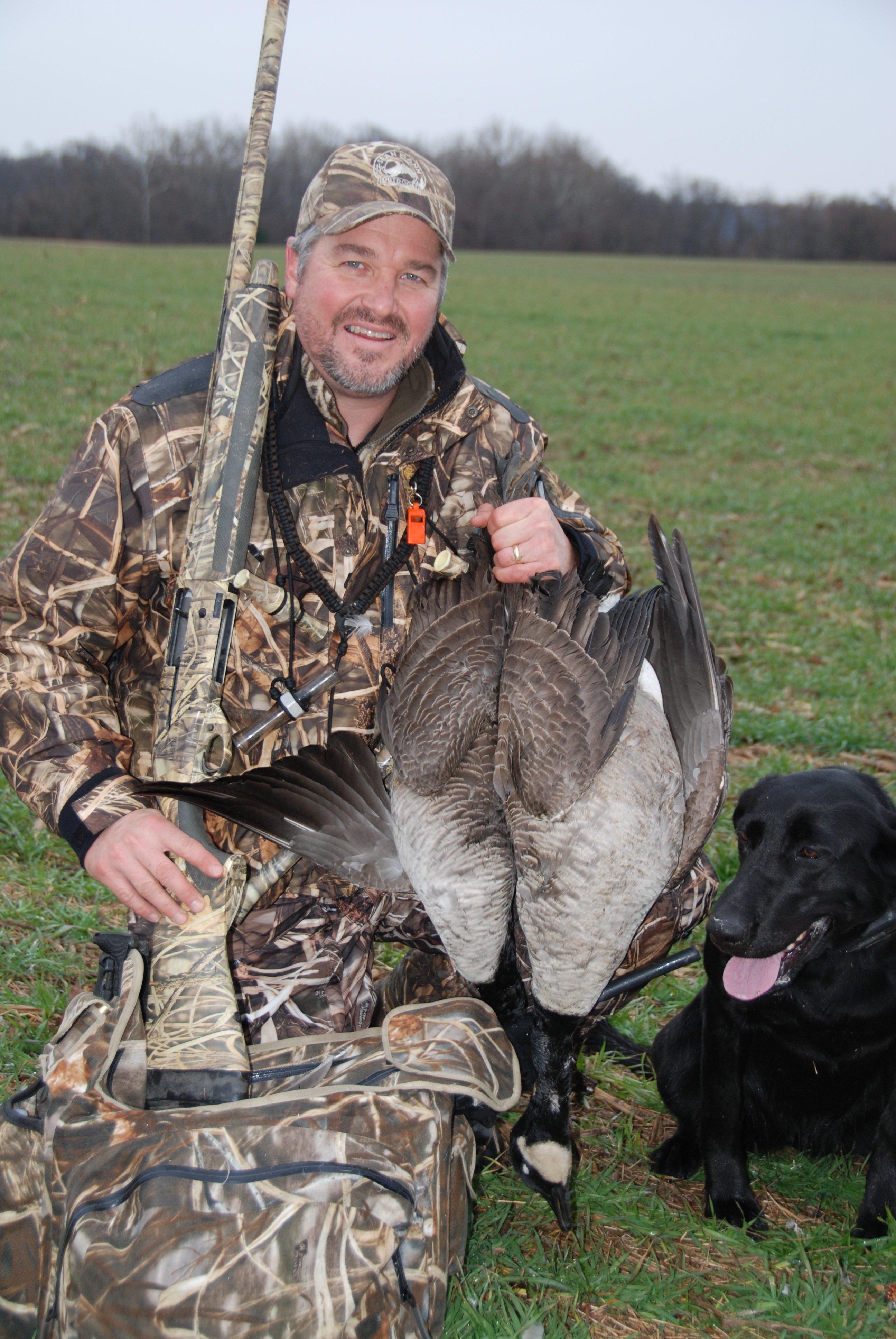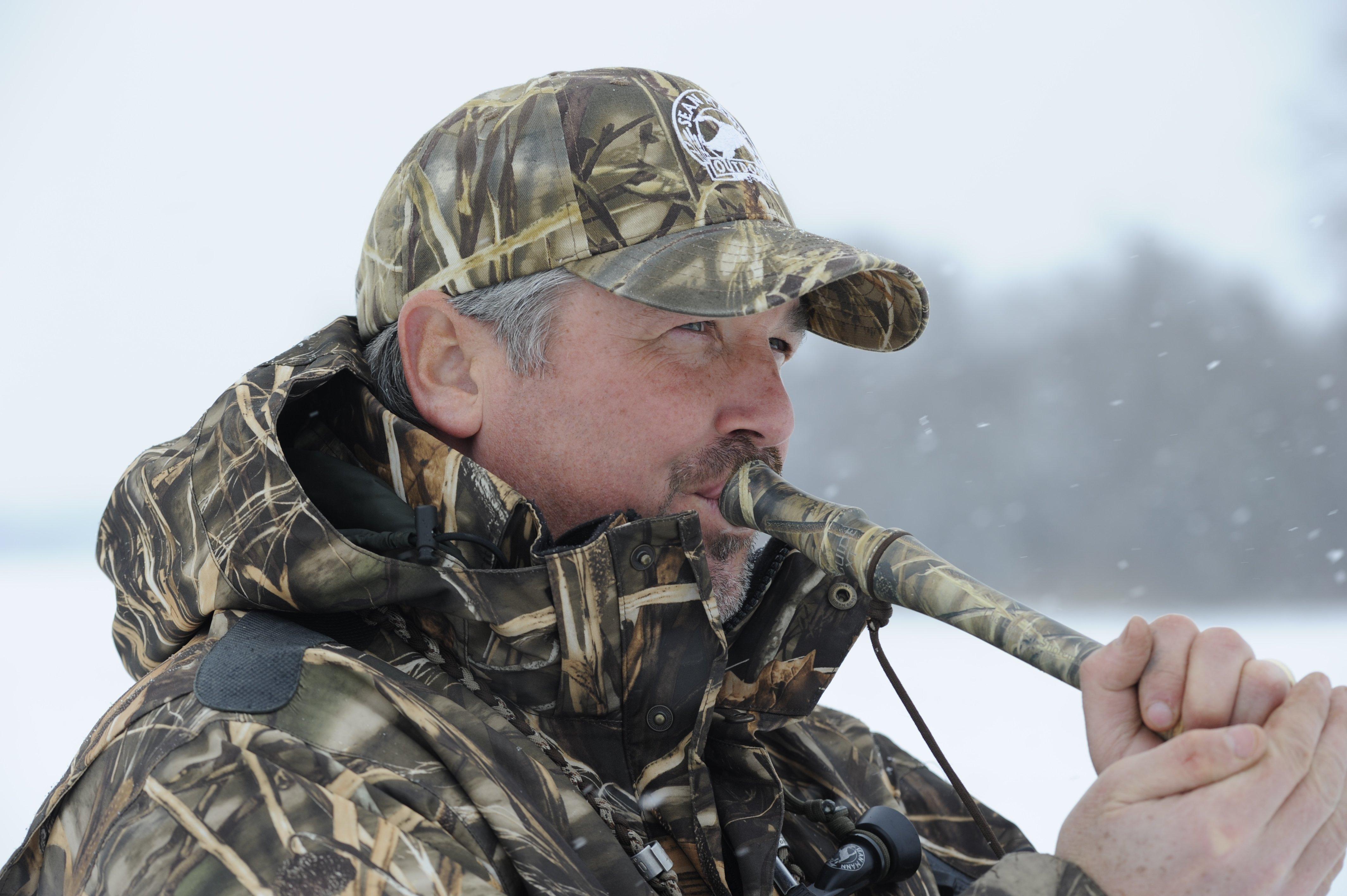Do you need an acrylic call or wood? Short reed or flute? Champion caller Sean Mann shares his insight
Deciding which duck or goose call to add to your lanyard is difficult even if you've hunted waterfowl for a while. It's much tougher if you're new. You can search Google and YouTube for suggestions, but opposing opinions can add to the confusion.
Enter Sean Mann, the creative force behind Sean Mann Outdoors and Wing Nutz Calls (Wing Nut is the nickname Mann's father gave him). For the past 34 years, Mann has designed and built calls that have filled straps and wowed judges. He has two World Goose Calling Championships (1985 and '86), and he won the World Goose Calling Champion of Champions contest in 1995. Mann's claim to call-making fame is the legendary Eastern Shoreman, but many of his calls have accounted for more than 35 world and international titles. The man knows calls — and ducks and geese.
I caught up with him at his home in Easton, Maryland, on a dreary October day when we probably should have been chasing something with feathers.
Realtree: What's the biggest mistake folks make when they try to choose a new call?
Sean Mann: They don't listen for the animal. I think the Internet and YouTube have helped a lot of people get a lot of information, but at the end of the day, if you buy a call based on the guy on the Internet, are you trying to sound like an animal or like the guy on the Internet? Plus, there are a lot of duck and goose calls that require a lot of unnatural manipulation to get them to work, like back pressure or grunting. These are things folks shouldn't have to do.
RT: So what should we do?
SM: Buy the call based on how close it sounds to Mother Nature. When a person picks up a duck call and it sounds like a duck, that's a good duck call. You shouldn't have to unlock some secret. Sounding like the guy on the Internet is fine. Sounding like your buddy at the other end of the blind is fine. But your effectiveness will be based on how much you can sound like the ducks that you're hunting.

SM: Obviously, you can only buy what you can afford. But there are quality calls available at every price point. There's always a new thing, but I recommend that folks buy what they like. There are some great calls out there at the $20 mark. If you look hard enough, you'll find the calls that will work for you at a price you can afford.
RT: OK, but there are still thousands of duck calls. Where do you begin?
SM: Begin with your ears. You listen to different calls. You hear what your buddy has. Or you ask your friends what they like and why. At the end of the day, you're trying to find a call that you can pick up, blow air through and hear it quack. Everything you do with a reeded duck call is a variation of a quack. So pick one up and quack. If you can quack on one, you'll know you can spend time with it and learn how to get all the cool stuff out of it.
RT: Single-reed? Double-reed? Does it matter?
SM: If you talk to folks in the calling world, they'll likely tell you that a single-reed Arkansas-style call will take you more places than a double-reed. And I would agree. For a power call, though, I like a double-reed. It's not a finesse call. The harder you blow on them, the angrier they sound.
RT: Everything on YouTube that's about geese is about short-reed calls. Are long calls — flute-style calls you simply blow into — really that out of style?
SM: Every champion-level caller and top-flight guide in the country has a flute call in their blind bag. You don't become a top-level caller without having some versatility and knowledge of what the various styles of calls are capable of. Why do they work so well? Because they sound like geese. And geese don't watch YouTube. A lot of people think that flute calls aren't in style, and that's fine. But when a person calls and asks me what goose call he should buy, whether he's new or already has a call, I tell him an Eastern Shoreman. It won't break the bank, and he'll have some bird sounds come out the other end. Every year, there's been a flute in the finals of the World Live Goose Calling Championship, which is a contest based solely on sounding like the birds.
RT: If I want to become a better caller, what do I need to do?
SM: How do you get good at calling? Not from watching Billy Bob on YouTube. Or watching me on YouTube. I'll help you, of course. If you don't spend time in the environment and then spend time practicing your instrument, how good do you expect to get? Everybody has a cell phone. And those phones will record sounds. And you can go to the park, refuge or field and record birds. Use those recordings as a study tool. Then record yourself and see how close you're getting to those birds. Don't worry about sounding like anyone else. Worry about sounding like the birds.
Click here for more Realtree waterfowl hunting content. And check us out on Facebook.








